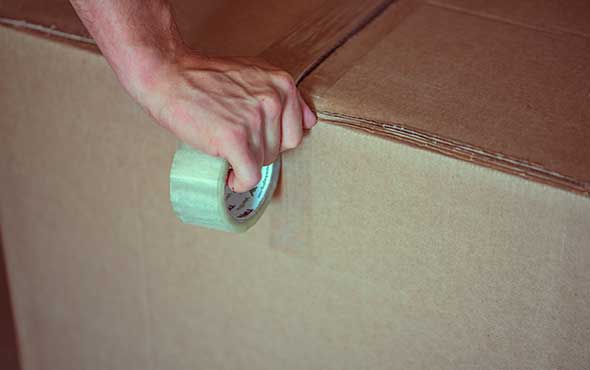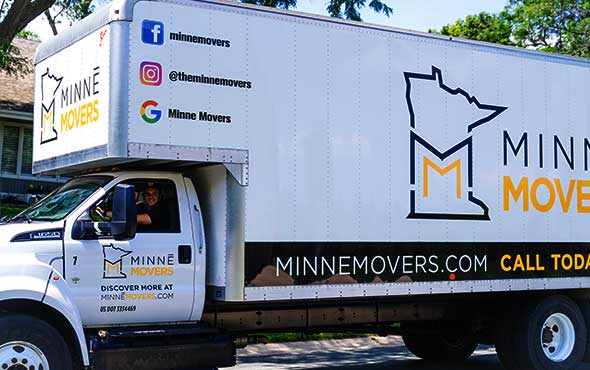Relocating, whether within the bustling cities of Minneapolis and Saint Paul or across the scenic landscapes of Minnesota, is a pivotal moment that demands thorough preparation and financial planning. The North Star State, known for its myriad lakes and diverse climates, presents unique challenges and expenses for anyone moving. This guide offers an in-depth look at the financial aspects of relocating within Minnesota, providing you with the necessary tools for effective budgeting and decision-making. Understanding the spectrum of costs involved not only sets realistic expectations but also unveils strategies to streamline expenses throughout your moving journey.
Deciphering Moving Expenses
The cost of relocating in Minnesota can fluctuate significantly based on various factors:
- Distance of the Move: Are you moving across town or crossing state lines?
- Volume of Belongings: How much do you need to move?
- Seasonal Timing: Are you moving during the peak season of late spring to early fall?
- Moving Method: Will you hire professional movers, or are you considering a DIY move?
Local relocations generally cost less than their long-distance counterparts, but the specifics of your move greatly influence the final bill. Moreover, opting for a move during the high-demand months can further inflate costs.
Examining Key Moving Expenses
National Moving Average Cost
When considering the cost of hiring professional movers for a local relocation within Minnesota, it's crucial to look at the latest national averages to set realistic budget expectations. As of recent data, the national average cost to hire local movers is approximately $1,702. However, the range can vary significantly, with a local move typically costing between $882 and $2,547. This variation in cost reflects the inclusion of a truck rental and the services of two professional movers for moves deemed local, meaning within the same county or state and up to 100 miles distance. - source
Professional Movers vs. DIY: A Cost-Benefit Analysis
When it comes to moving, one of the most significant decisions you'll face is whether to hire professional movers or take a DIY approach. This choice not only affects your budget but also your stress levels and the overall experience of the move. Here's a closer look at what each option entails and their respective pros and cons.
Professional Movers: Ease and Efficiency at a Premium
Hiring professional movers offers convenience and efficiency. Professionals take care of the heavy lifting, transportation, and logistics, making the moving process smoother and faster. The costs associated with hiring professionals typically depend on the weight or volume of your belongings and the length of the journey.
Pros:
- Less Physical Strain: You won't have to lift heavy boxes or furniture, reducing the risk of injury.
- Faster Move: Professional movers have the experience and resources to complete moves more quickly.
- Expertise: Movers are skilled in handling and packing items to prevent damage.
Cons:
- Higher Costs: Professional services come at a higher price compared to managing the move yourself.
- Less Control: You'll have less say in how items are packed and the timing of the move.
DIY Moving: Greater Effort but Potentially More Wallet-Friendly
Opting for a DIY move involves taking on all aspects of the moving process, from packing to transportation. While it demands more effort and time, it can be significantly cheaper, especially for local moves.
Pros:
- Greater Control: You decide how and when to pack, move, and unload your belongings.
- Potential Cost Savings: Avoiding professional fees can make DIY moves more budget-friendly.
Cons:
- Physically Demanding: You'll be responsible for all the physical labor, which can be strenuous and tiring.
- Time-Consuming: Planning and executing a move without professional help takes considerable time and effort.
- Requires Detailed Planning: You'll need to manage logistics, from renting a moving truck to securing moving equipment.
Making the Choice
Your decision between professional movers and a DIY move will depend on several factors, including your budget, timeline, the complexity of the move, and your personal preference regarding effort versus convenience. If you're moving a long distance or have a lot of large, heavy items, the benefits of hiring professionals might outweigh the costs. On the other hand, a local move with fewer belongings might be more manageable on a DIY basis, especially if you're looking to save money and are willing to put in the work.
Regardless of the route you choose, planning and preparation are key to a successful move. Evaluate your priorities and resources carefully to make the best decision for your situation, ensuring a smooth transition to your new home.
What Does it Cost to Move Within Minnesota?
Moving within the state of Minnesota, known for its diverse landscapes from the bustling Twin Cities to the tranquil North Shore, entails various costs depending on the size of your home and the range of services you require. Understanding these costs is essential for planning an efficient and budget-friendly move.
Factors Influencing Costs
Several factors contribute to the cost of intrastate moves, including:
- Home Size: Naturally, the larger your home, the more belongings you'll likely have, increasing the cost due to the need for more packing materials, larger transportation capacity, and possibly additional movers.
- Distance: While intrastate moves don't cover vast distances like interstate relocations, the distance between your current and new home can still impact the overall cost, especially if it involves moving from one end of Minnesota to the other.
- Services Required: Full-service moves, including packing, loading, transporting, unloading, and unpacking, are more expensive than partial service or DIY moves where you might only hire movers for transportation.
Average Costs for Local Moves
Based on the national average, hiring local movers can cost around $1,702, with a range typically falling between $882 and $2,547 for a local move. This range accounts for using a truck rental and two professional movers, considering the move as local (within the same county or state and up to 100 miles). It's important to note that these figures can vary based on the specific requirements of your move, such as the number of movers needed, the amount of packing supplies required, and any additional services like storage or special item handling.
Estimating Your Moving Costs
To get a more accurate estimate of your moving costs within Minnesota, consider the following steps:
- Inventory Your Belongings: Take stock of what you need to move to estimate the truck size and number of movers required.
- Get Multiple Quotes: Contact several moving companies for quotes. Be specific about the services you need to get an accurate estimate.
- Consider Moving Insurance: Ensure your belongings are protected during the move. Some movers offer basic coverage, but you might want additional insurance for high-value items.
- Plan for Additional Fees: Be aware of potential additional costs such as packing supplies, long carry fees if movers have to park far from your door, or special handling fees for heavy or delicate items.
The Price Tag on Long-Distance Relocations
When it comes to moving across state lines or even across the country, the costs can significantly surpass those of local moves. Long-distance relocations involve a myriad of variables, each contributing to the overall price tag of the moving process. Factors such as the total distance of the move, the weight and volume of your belongings, and the specific services you require (such as packing, special item handling, and storage) play crucial roles in determining the final cost.
Average Costs for Long-Distance Moves
The cost of a long-distance move can vary widely. For instance, moving a one-bedroom apartment across several states may cost anywhere from $2,000 to $5,000, while relocating a larger home could set you back $5,000 to $10,000 or more. These estimates can fluctuate based on the moving company's pricing structure, the timing of your move, and the level of service you choose.
Factors Influencing Long-Distance Moving Costs
- Distance and Load Size: Naturally, the farther you move and the more items you have, the higher the cost. Longer distances require more fuel, labor, and potentially higher tolls and lodging expenses for the moving crew.
- Packing and Unpacking Services: Opting for full-service packing and unpacking can significantly increase the cost but offers convenience and security for your belongings.
- Specialty Items: Possessions that require special handling, such as pianos, artwork, or oversized furniture, can add to the overall cost due to the need for extra care and equipment.
Strategies to Ease the Financial Burden of Moving
Despite the inherent costs, there are strategies to manage and even reduce the financial impact of your move:
- Declutter to Lighten Your Load: The less you have to move, the less it will cost. Selling, donating, or disposing of items you no longer need can reduce the weight of your move and potentially lower your moving costs.
- Book Moving Services in Advance: Planning ahead can not only secure you a better rate but also give you ample time to compare quotes from multiple moving companies to find the best deal.
- Select a Cost-Effective Moving Date: Moving during the off-peak season (typically late fall to early spring) or on weekdays can result in lower costs compared to peak times like summer weekends.
- Compare Quotes from Multiple Movers: Shopping around and comparing detailed quotes from several reputable moving companies can help you find the best price and service for your needs.
Implementing these strategies can significantly mitigate the expenses associated with moving, making your long-distance relocation more affordable and less stressful. Remember, the key to a cost-effective move is thorough research and strategic planning.
Beginning Your Minnesota Moving Adventure
Understanding the multifaceted costs associated with moving in Minnesota enables informed decision-making, ensuring your relocation is not only budget-friendly but also smooth and stress-free. Beyond minimizing expenses, the essence of a successful move lies in careful planning and execution.
Ready to Take the Next Step?
If you're gearing up for a move in Minnesota, reach out for personalized quotes and expert advice tailored to your unique needs. Explore our website for more resources, including comprehensive moving checklists and tips, to ensure a seamless transition to your new home.





